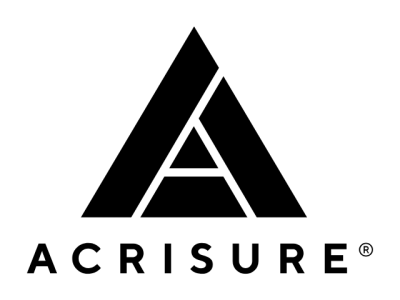
Sponsored Content
In anticipation of the upcoming health insurance renewal season, employers commonly focus on key elements like costs, deductibles, plan designs, and premiums. While these factors undoubtedly demand attention, equally crucial are the compliance issues tied to your health plan. Recently, mental health parity and HIPAA reproductive privacy rights have been in the spotlight due to complexities in existing legislation, amendments to final rulings, and temporary non-enforcements, causing widespread confusion.
Employers should be particularly mindful of any unexpected changes that could arise, as these might impact their operations significantly. Just like with other “final rulings,” current circumstances are all we can address. It's essential for employers to remain alert to new developments and comprehend their implications for specific circumstances.
Let's delve into the latest updates and highlight the essential aspects that are crucial for employers to be aware of.
Mental Health Parity and Addiction Equity Act
The Mental Health Parity and Addiction Equity Act (MHPAEA) has received a lot of attention lately. Terms such as 'comparative analysis' and 'temporary non-enforcement of the final rule' are circulating, leaving employers eager to grasp their implications and, more importantly, determine the necessary actions they must take.
What is MHPAEA?
The MHPAEA mandates that group health plans provide parity between medical/surgical (M/S) benefits and mental health or substance use disorder (MH/SUD) benefits. This parity encompasses both the financial requirements and treatment limits associated with MH/SUD benefits. Additionally, any nonquantitative treatment limitations (NQTLs) imposed on MH/SUD benefits must adhere to MHPAEA's parity standards.
The MHPAEA mandates that health plans and insurance issuers perform comparative analyses of NQTLs used for MH/SUD benefits in comparison to M/S benefits. This analyses must be accessible to the U.S. departments of Labor, Health and Human Services, and Treasury, or relevant state authorities, upon request. This requirement for comparative analysis is not new; it has been a compliance obligation for health plans since 2021.
What Does “Temporary Non-Enforcement of the Final Rule” Mean? Are Employers Off the Hook for the Comparative Analysis?
In September 2024, a final rule was introduced to enhance the requirements of the MHPAEA. This rule established minimum standards for conducting comparative analyses to determine if a nonquantitative treatment limitation (NQTL), both in documentation and execution, adhered to MHPAEA criteria. It also introduced additional data components for the analysis, design, and application, along with the debated fiduciary certificate requirement. These provisions took effect on January 1, 2025.
However, on May 15, 2025, the federal departments of Labor, Health and Human Services, and Treasury announced a temporary nonenforcement policy for the 2024 final rule. Under the temporary non-enforcement rule, the added components of the final ruling (additional data points for analysis, design, and application and the fiduciary certificate requirements) are not enforceable until further notice from the departments.
What does not and has not changed is the comparative analysis component. This is still a compliance requirement for all health plans as noted in the original CMS 2021 FAQ publication.
So What’s Next? Who Is Responsible for the Comparative Analysis?
Who completes the Comparative Analysis will depend on the type of funding your plan is. However, the responsibility of meeting the compliance requirement falls with the plan administrator.
- Fully insured: Carrier
- Self-insured: Third-party administrator or legal counsel (at the plan administrator’s expense)
A self-compliance tool has been provided by the Employee Benefits Security Administration (EBSA) for employers. This is a helpful tool in determining where a plan stands in comparison to the MHPAEA requirements; however, this does not meet the comparative analysis compliance requirement, which still needs to be completed. If you need suggestions on qualified vendors to complete your comparative analysis, reach out to your respective client management team.
Employers that do not complete the comparative analysis are assuming a risk and may incur federal penalties.
Will the Non-Enforcement Rule be Lifted?
Simply put, we don’t know. Rulings and final rulings are always subject to change and at any given time. Some have mentioned waiting “awhile” to see if the requirement will change. This is a risk that the plan administrator will be assuming. We can only provide guidance on what the law/compliance requirements are currently.
As with other “final rules,” the final ruling for HIPAA Privacy Protection for Reproductive Health Care have also been put on hold or, in court terms, v-a-c-a-t-e-d.
HIPAA Privacy Rule “Final Rule” (April 2024)
In April 2024, a “final” ruling was enacted prohibiting regulated entities from using or disclosing protected health information (PHI) concerning lawful reproductive health care. This ruling mandated a valid attestation whenever there was a request for the use or disclosure of PHI related to reproductive health care, ensuring that it complied with legal guidelines. This regulation took effect on December 23, 2024.
However, on June 19, 2025, a federal judge in Texas repealed key elements of the HIPAA Privacy Rule, including the contentious attestation requirement for reproductive health care privacy. Consequently, HIPAA-covered entities were to immediately stop requiring a HIPAA-compliant attestation for such requests.
Despite the repeal of reproductive health care data requirements, the court upheld specific provisions related to substance use disorder records. Organizations that updated their policies to align with the 2024 ruling must make necessary adjustments immediately.
Similar to other employment regulations, numerous states have established their own laws concerning reproductive health protections. If you are located in such a state, or have employees located in those states, compliance with those state laws remains mandatory.
As compliance grows increasingly complex due to evolving regulations and requirements, it can be challenging to stay informed. If you're uncertain about the implications of these changes, connect with your Account Management team. A simple phone call could prevent the costly consequences of non-compliance.